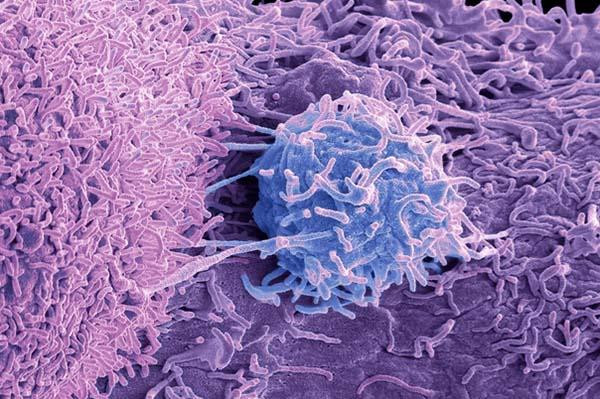Let’s face it: inflammation has a bad reputation. Much of it is well-deserved. After all, long-term inflammation contributes to chronic illnesses and deaths. If you just relied on headlines for health information, you might think that stamping out inflammation would eliminate cardiovascular disease, cancer, dementia, and perhaps aging itself. Unfortunately, that’s not true. Still, our understanding of how chronic inflammation can impair health has expanded dramatically in recent years. And with this understanding come three common questions: Could I have inflammation without knowing it? How can I find out if I do? Are there tests for inflammation? Indeed, there are.…
Popular Posts
-
-
Although inflammation serves a vital role in the body’s defense and repair systems, chronic inflammation can cause more harm than good. And that may make you wonder: what can I do about it? In fact, there’s a lot you can do. And you may already be doing it. That’s because some of the most important ways to fight inflammation are measures you should be taking routinely. Let’s take a look at key elements of fighting chronic inflammation: prevention, detection, and treatment. Six ways to prevent unhealthy inflammation Six of the most effective ways to ward off inflammation are: Choose a…
-
When experts talk about the dangers of excessive drinking, we often assume those warnings apply mostly to people with alcohol use disorder, a health issue sometimes referred to as alcoholism. But people who don’t meet formal criteria for this disorder can still experience toxic effects and suffer other serious harms from alcohol, says Dr. John F. Kelly, professor of psychiatry in addiction medicine at Harvard Medical School. And as research turns up new evidence about alcohol, many people are considering the benefits of drinking less, even if they’re not ready to stop imbibing entirely. How does alcohol affect the body?…
-
Roughly one in six men will be diagnosed with prostate cancer at some point in their lives, but these cancers usually aren’t life-threatening. Most newly diagnosed men have Grade Group 1 (GG1) prostate cancer, which can linger for years without causing significant harms. Prostate cancer is categorized according to how far it has spread and how aggressive it looks under the microscope. Pure GG1 prostate cancer is the least risky form of the disease. It occurs frequently with age, will not metastasize to other parts of the body, and it doesn’t require any immediate treatment. So, should we even call…
-
By midwinter, our urge to hibernate can start to feel constricting instead of cozy. What better antidote to being cooped up indoors than a bracing hike in the crisp air outdoors? Winter backdrops are stark, serene, and often stunning. With fewer people on the trail, you may spot more creatures out and about. And it’s a prime opportunity to engage with the seasons and our living planet around us, says Dr. Stuart Harris, chief of the Division of Wilderness Medicine at Massachusetts General Hospital. But a multi-mile trek through rough, frosty terrain is far different than warm-weather hiking, requiring consideration…
-
By the time boys are 8 or 10, they’re steeped in Marvel action heroes with bulging, oversized muscles and rock-hard abs. By adolescence, they’re deluged with social media streams of bulked-up male bodies. The underlying messages about power and worth prompt many boys to worry and wonder about how to measure up. Sometimes, negative thoughts and concerns even interfere with daily life, a mental health issue known body dysmorphic disorder, or body dysmorphia. The most common form of this in boys is muscle dysmorphia. What is muscle dysmorphia? Muscle dysmorphia is marked by preoccupation with a muscular and lean physique.…
-
Nantucket, a beautiful, 14-mile-long island off the coast of Massachusetts, has a 40-point resiliency plan to help withstand the buffeting seas surrounding it as climate change takes a toll. Perhaps we can all benefit from creating individual resilience plans to help handle the big and small issues that erode our sense of well-being. But what is resilience and how do you cultivate it? What is resilience? Resilience is a psychological response that helps you adapt to life’s difficulties and seek a path forward through challenges. “It’s a flexible mindset that helps you adapt, think critically, and stay focused on your…
-
Looking for gifts to give or donate this year? Climate-conscious gifts come in many guises. They may directly support our environment, for example, or aim to reduce fossil fuel use and electronic, textile, and food waste. Or they might offer enjoyable, creative ways to connect, reuse, and recycle — and possibly even regift. “Our purchases and choices impact our climate and planet,” notes Dr. Wynne Armand, a physician and associate director of the Massachusetts General Hospital Center for the Environment and Health. Small steps like these do help, she says, even when the complex issues of climate change leading to…
-
Chocolates and flowers are great gifts for Valentine’s Day. But what if the gifts we give then or throughout the year could be truly life-changing? A gift that could save a life or free someone from dialysis? You can do this. For people in need of an organ, tissue, or blood donation, a donor can give them a gift that exceeds the value of anything that you can buy. Fittingly, Valentine’s Day is also known as National Donor Day, a time for blood drives and sign-ups for organ and tissue donation. Have you ever wondered what can be donated? Had…
-
Metastatic prostate cancer can progress in different ways. In some men the disease advances rapidly, while other men have slower-growing cancer and a better prognosis. Researchers are developing various tools for predicting how fast prostate cancer might progress. Among the most promising are assays that count circulating tumor cells (CTCs) in blood samples. Prostate cancer spreads by shedding CTCs into the bloodstream, so higher counts in blood generally reflect worse disease. Sometimes referred to as a liquid biopsy, the CTC assay can help doctors decide if patients should get standard or more aggressive treatment. Just one CTC assay is currently…














